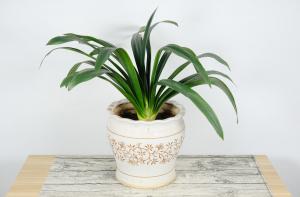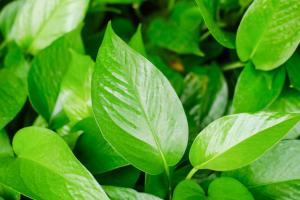Introduction
Black walnut trees are a beautiful addition to any yard or garden, but they can be notoriously difficult to find companion plants for. The roots of black walnut trees release a chemical called juglone, which can be toxic to many plants.
Plants to Avoid
When it comes to planting under black walnut trees, there are some plants to avoid. These include tomatoes, potatoes, peppers, eggplants, and cucumbers. These plants are all members of the nightshade family and are particularly susceptible to juglone toxicity. Other plants to avoid include blueberries and azaleas.
Companion Plants
While it may seem like there are few options when it comes to planting with black walnut trees, there are actually some plants that can thrive in their presence. Here are a few options:
1. Ferns
Ferns are a great option for planting under black walnut trees. They don't seem to be bothered by juglone toxicity and can thrive in the shade. Plus, ferns add a beautiful touch of green to any space. Some great options include Lady Ferns, Maidenhair Ferns, and Ostrich Ferns.
2. Hostas
Hostas are another plant that can do well under black walnut trees. They are known for their shade tolerance and can add a splash of color to any garden. Hosta varieties to consider include Patriot, Halcyon, and Blue Angel.
3. Wildflowers
Planting wildflowers is a great way to bring some beauty to your yard while also supporting pollinators. Some wildflowers that can tolerate juglone toxicity include columbine, wild geranium, and Virginia bluebells. These flowers can add a pop of color to your yard and attract butterflies, bees, and other important insects.
4. Daylilies
Daylilies are a hardy plant that can do well despite the presence of juglone. They come in a range of colors and can add a touch of whimsy to your garden. Some daylilies to consider include Stella d'Oro, Happy Returns, and Kwanso.
Conclusion
While black walnut trees may seem difficult to plant with, there are actually a number of options to consider. When looking for companion plants, it's important to avoid nightshade family plants and instead opt for shade-tolerant plants like ferns, hostas, and wildflowers. With some careful planning, you can create a beautiful garden space that is compatible with your black walnut tree.

 how many times do yo...
how many times do yo... how many planted tre...
how many planted tre... how many pine trees ...
how many pine trees ... how many pecan trees...
how many pecan trees... how many plants comp...
how many plants comp... how many plants can ...
how many plants can ... how many plants and ...
how many plants and ... how many pepper plan...
how many pepper plan...
































